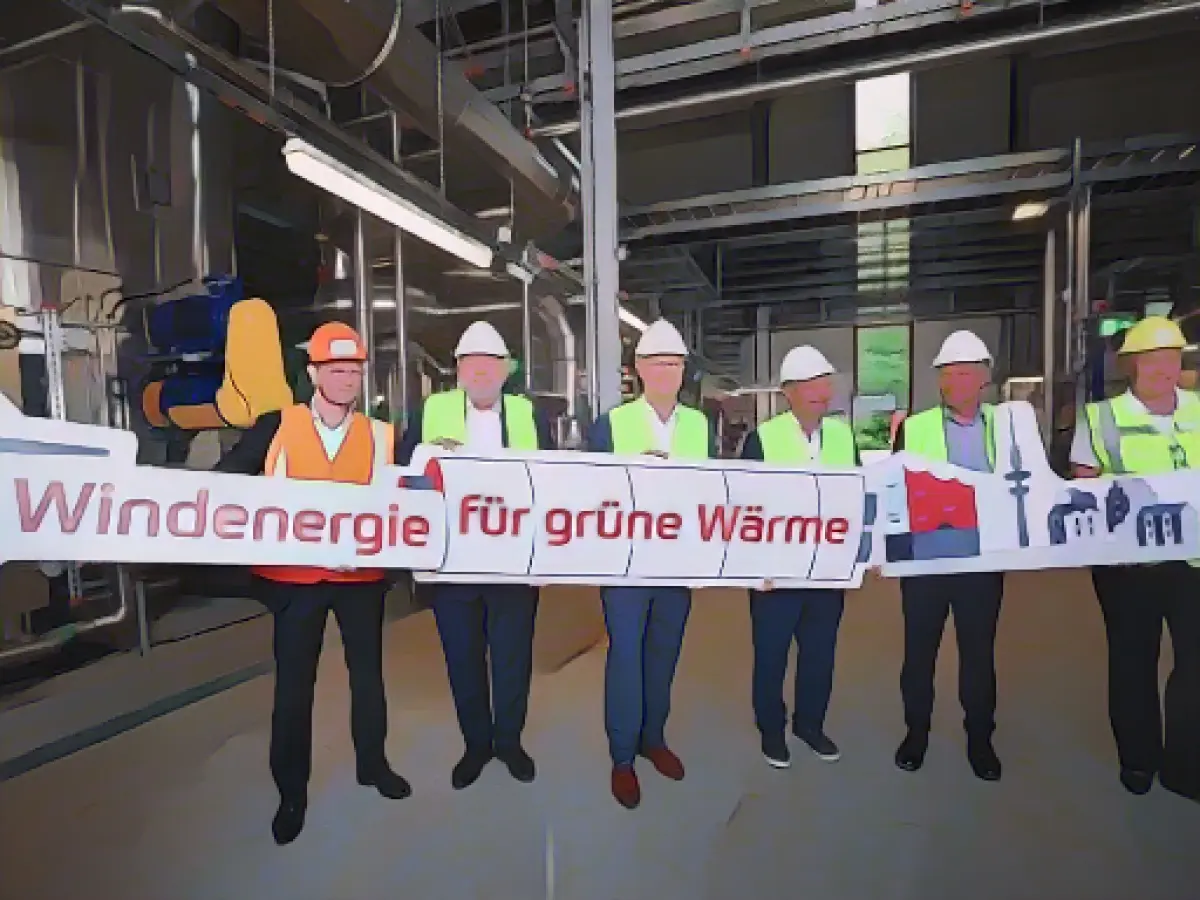Title: The Delayed Launch of Wedel's Wind-to-Heat Plant
With a price tag of around 31.5 million euros, the new wind-to-heat plant at the Wedel CHP plant was expected to revolutionize Hamburg's district heating network by turning wind power into heat. Six months after its completion, however, the plant is still not in full operation, leaving many curious about why the launch has been delayed.
In response to a question from the CDU parliamentary group, the Senate confirmed that the plant has not yet been switched on, explaining that it has only been in trial operation since October 16 and has only produced negligible heat during that period. The Commissioning phase heat production is trivial, as stated by the Senate.
The Wedel wind-to-heat plant, or power-to-heat, aims to convert wind energy into heat, emulating the process of heating water in a large kettle to 138 degrees Celsius across two electric boilers with 23,000 liters of water. This innovative plant, capable of generating up to 80 megawatts, could theoretically supply green district heating to 27,000 households and save up to 100,000 tons of CO2 annually. The savings in coal usage are even estimated to be as high as 50,000 tons at the Wedel CHP plant, with the Senate initially anticipating 110,000 tons of coal savings in 2020.
Federal Economics Minister Robert Habeck (Greens) attended the plant's official commissioning ceremony on June 8, praising the development as a valuable stepping stone towards the country's heating transition. Noting the importance of such facilities, Habeck pointed out that there are approximately 30 power-to-heat plants scattered across Germany, with Wedel being one of the largest.
Despite the positive sentiments surrounding the facility, the sky-high expectations have notably fallen short so far. With the plant entering trial operation in mid-October of last year and still yet to be fully operational, questions linger over the factors causing the delay, and whether these setbacks will impact the plant's ultimate ability to deliver on its intended promises.
Why the delays?
The exact reasons for the plant's delay have not been disclosed, but industry experts shy away from speculating that the plant may be experiencing operational challenges. To fully understand the issues at hand, investigating the trial operation, commissioning date, and any technical or regulatory developments related to the wind-to-heat conversion process could provide valuable insights.
In the search for this information, various documentation sources, such as official reports, technical maintenance records, energy industry news publications, and regulatory updates, may offer valuable leads. Factors underlying the delays could include complex implementation aspects, technical troubleshooting, permit-related hurdles, or other operational challenges, as each wind-to-heat facility may face unique hurdles on its journey to full operation.
As future developments unfold, answers to these questions and a better understanding of the Wedel wind-to-heat plant are essential to determining whether climate-conscious plans can still be achieved and whether this delay is just a minor setback or a harbinger of larger issues ahead.








